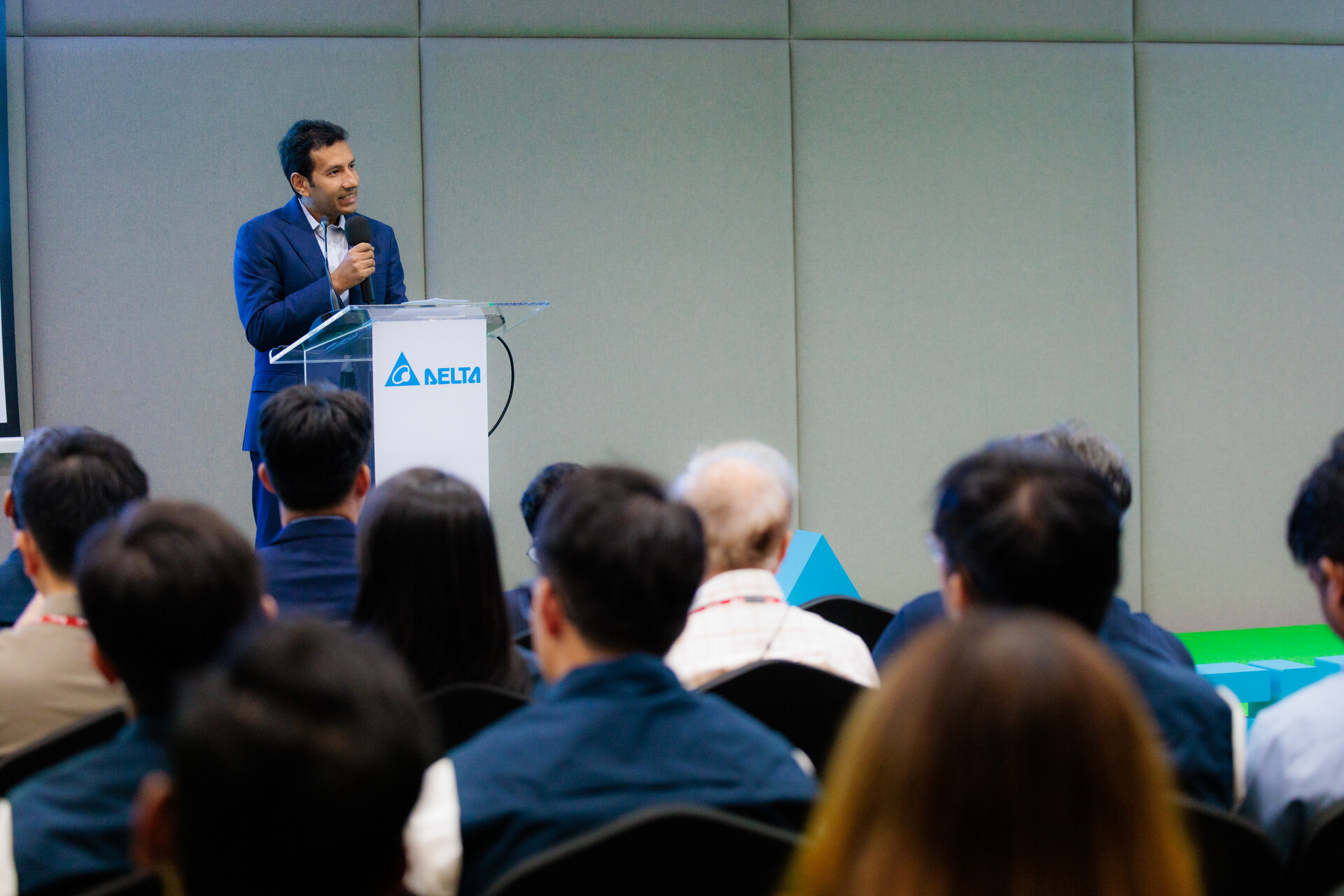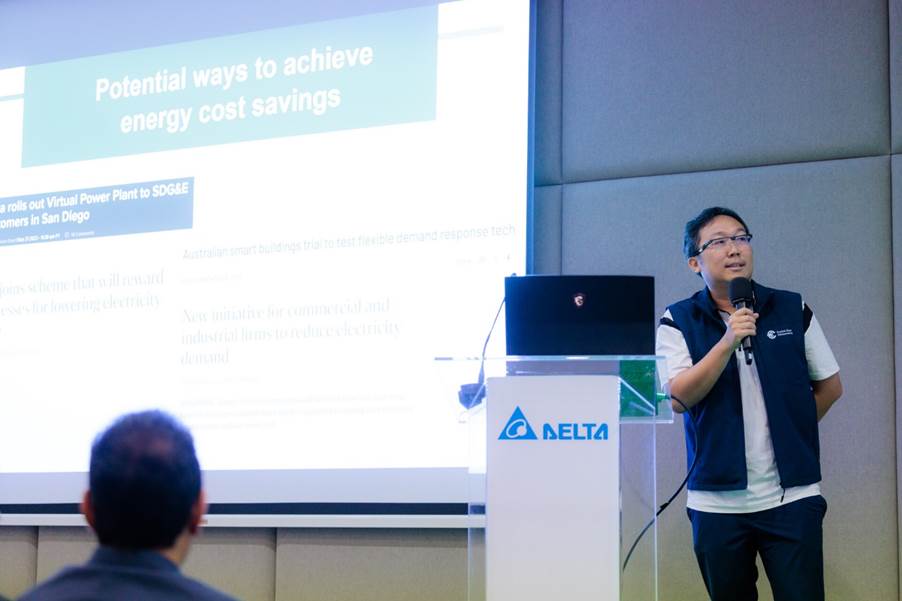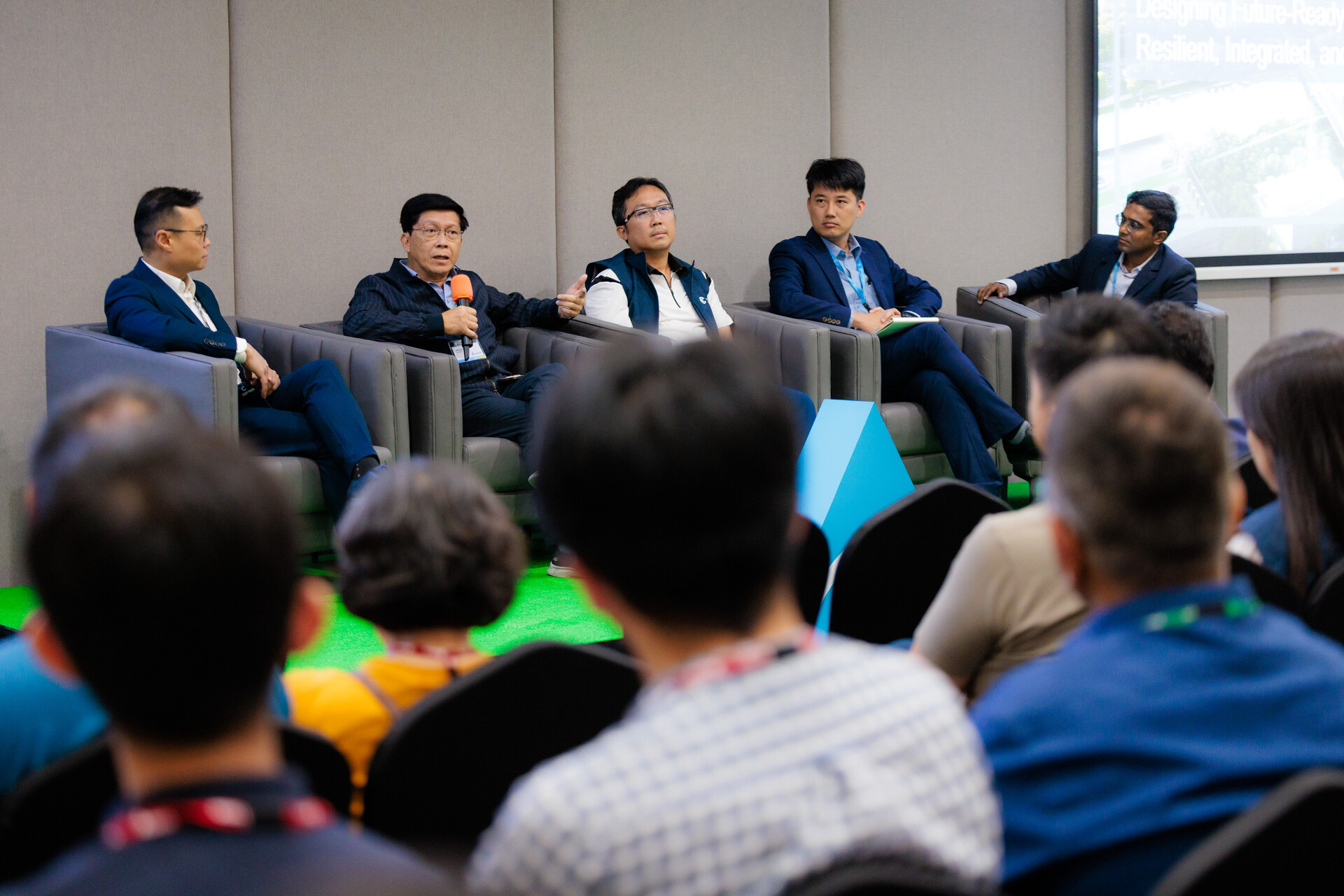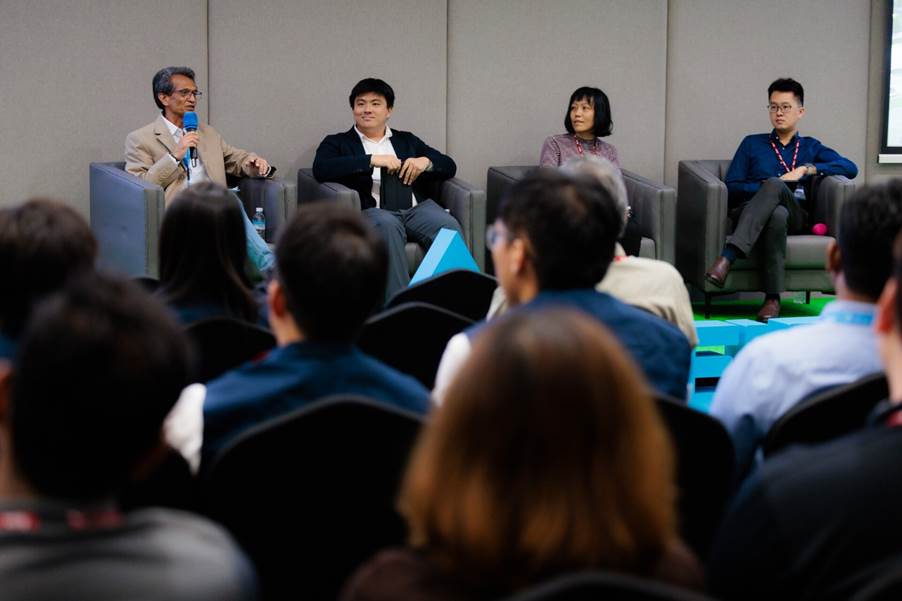As Singapore advances toward its net-zero goals, progress will depend on both effective policy and smarter infrastructure combined with data-driven energy strategies.
At Delta Solutions Day Singapore 2025, Delta Electronics Singapore gathered industry leaders to explore how integrated technologies such as Building and industrial automation, Battery Energy Storage Systems (BESS), Demand Response and carbon services are reshaping the energy landscape with resilience, intelligence and sustainability at the core.

This year’s theme, Integrated Solutions for a Resilient Tomorrow, highlights the need for future-ready infrastructure built on the pillars of integration, intelligence and resilience. Kevin Tom, Head of SEA Energy Infrastructure Platform, Delta Electronics, opened the event with his welcome address.
Resilience and Sustainability: Essentials for Today’s Energy Landscape
In the opening keynote, Frank Tan, Director of Crystal Clear Environmental, shared how businesses can go beyond ticking sustainability boxes to transform them into long-term operational advantages.
The opportunity lies in Demand Response, a practical and scalable solution that enables businesses to ease grid pressure, optimise energy use in real time and participate in energy markets, contributing meaningfully to national decarbonisation goals.

Frank Tan, Director of Crystal Clear Environmental, shared insights from his local Battery Energy Storage System (BESS) project with Delta Electronics.
Tan’s case study, delivered in partnership with Delta Singapore, demonstrated real-world results. Deploying Battery Energy Storage Systems (BESS) and implementing smart monitoring systems in an industrial site led to improved energy visibility and reductions in energy costs. These efforts not only support regulatory compliance but also enhance grid stability and business resilience.
Designing Future-Ready Infrastructure: Resilient, Integrated, Intelligent
The conversation on how to rethink infrastructure in response to climate risk, digitalisation and decentralised energy systems continued in the panel on Designing Future-Ready Infrastructure: Resilient, Integrated, Intelligent. Panellists discussed what it takes to build resilient-by-design and sustainable-by-design systems, emphasising the importance of IoT 4.0 and advanced analytics for predictive maintenance, as well as the decentralisation of power supply to strengthen energy independence and allow proliferation of renewables.

Moderated by Karthik Arunachalam, ESG Principal Business Architect at Delta Electronics, the panel emphasised the importance of forward planning and staying responsive to Singapore’s evolving energy policies.
They also pointed to peer-to-peer energy trading pilots in Australia as useful models for Singapore’s future. A key theme was embedding security by design and carrying out rigorous risk assessments from the onset, not as a compliance requirement task but as a core design principle. Integration and intelligence across energy, water and IT systems were identified as essential, alongside the need for strong collaboration, and dependable after-sales support. The need to align with Singapore’s evolving regulations and policies was also highlighted. The key takeaway is that businesses today must understand their niche, build around it and design for long-term performance from the onset, regardless of whether it is for new greenfield infrastructure projects or for retrofitting brownfield infrastructure projects.
Digital-First, Low-Carbon: Operational Technologies Driving Singapore’s Net-Zero Transition
The final panel discussion spotlighted the role of operational technologies (OT) as critical enablers of decarbonization across the built environment and industrial sectors, where speakers explored how the latest techniques in this field such as IoT Sensors, Digital Twins, AI, and Predictive Analytics are reshaping the way buildings and factories are designed, operated, and optimized for sustainability.
While integration of legacy systems with modern IT and OT platforms, highlighted as the major challenge, convergence of OT & IT identified as a must for improving decision making, predictive maintenance, and energy optimization in buildings, plants, and data centers.

The second and final panel of the day explored how retrofitting strategies and sustainable design principles can support the development of greener, more energy-efficient spaces.
Beyond new builds, the discussion also challenged the long-held assumption that redevelopment is the only option. In a land-constrained city like Singapore, retrofitting offers a viable and lower-carbon path forward. Upgrades such as LED lighting, smart air-conditioning systems, rooftop solar and real-time energy monitoring can cut consumption while significantly enhancing carbon performance. These improvements extend the value of existing assets and align with sustainability targets without major disruption. Real world evidence provided to showcase retrofitted buildings achieved higher sustainability KPI’s compared to new built buildings.
The session also highlighted how design principles are evolving to include indoor environmental quality, with pilot efforts such as smart thermostat systems showcasing how real-time adjustments can balance comfort with efficiency. Collectively, these strategies reflect a growing commitment to digital-first, low-carbon infrastructure that is practical, resilient and built for the realities of urban density.
Singapore’s net-zero future will depend on integrated, intelligent, and adaptable energy and automation strategies. Events such as Delta Solutions Day highlight how strategic partnerships, lifecycle thinking, and innovation in retrofitting and demand flexibility can empower businesses to lead sustainability transitions across Asia.
Delta Electronics Malaysia will host its inaugural Delta Solutions Day on 21 August 2025. Learn more about the event here: Delta Solution Day